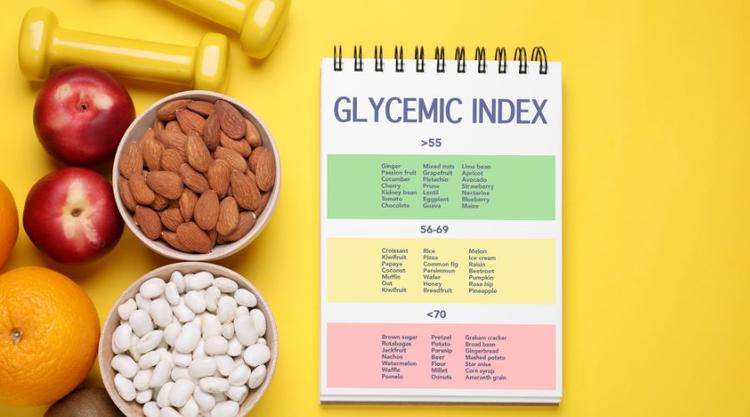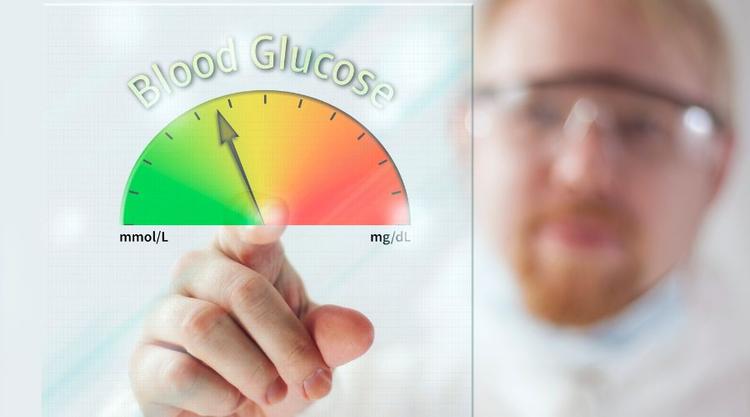What Is Diabetes & Its Causes, Symptoms?

Medically Reviewed By
Dr. Ragiinii Sharma
Written By Prekshi Garg
on May 9, 2022
Last Edit Made By Prekshi Garg
on Apr 18, 2024

What Is Diabetes & Its Causes, Symptoms?
Deep Vein Thrombosis is a serious condition characterized by the formation of a blood clot in your vein, located deep inside your body. It may take place anywhere but the lower limbs and pelvis are a common location.
Key Facts -
- About 425 million people globally are affected by diabetes.
- Inactivity, overweight, and obesity are the most common causes of diabetes.
- Type 2 is the most common type of diabetes affecting 90-95% of people diagnosed with diabetes.
- According to the IDF (International Diabetes Federation), one in 11 adults is diagnosed as having diabetes.
What Is Diabetes?
Diabetes is a condition where the body does not produce enough insulin or cannot use its own insulin effectively. This condition develops the most common effect of uncontrolled diabetes 'Hyperglycemia' or raised blood sugar.
A lack of control will result in serious damage to body systems, including nerves, kidneys, heart, eyes, and blood vessels.
Types Of Diabetes
In order to understand the causes and symptoms of diabetes, there are three types: Type 1 diabetes, Type 2 diabetes, and gestational diabetes.
- Type 1 Diabetes - Also known as juvenile diabetes, is a condition in which the pancreas produces very little or no insulin. This condition is known as insulin-dependent diabetes mellitus (IDDM).
- Type 2 Diabetes - Also termed adult-onset diabetes. In this type of diabetes, your body produces a small amount of insulin and resists that too. This form of diabetes is more prevalent than type 1 diabetes.
- Gestational Diabetes - This condition usually happens during pregnancy. It is diagnosed between 24 weeks and 28 weeks of pregnancy.
What Causes Diabetes?
Before getting diagnosed with diabetes people have pre-diabetic conditions. In which subjects suffer from diabetic symptoms, but those symptoms do not occur regularly.
Although, diabetes has a wide variety of causes, including an inactive lifestyle, obesity, and an autoimmune response.
- Causes Of Type 1 Diabetes - Type 1 diabetes is caused by an autoimmune reaction. It means your body attacks its insulin-producing cells and destroys them. If you have a positive family history of diabetes then you are more prone to it.
- Causes Of Type 2 Diabetes - Type 2 diabetes is caused by lifestyle factors like an inactive lifestyle and carrying overweight. Other genetic and environmental factors also play a role in developing type 2 diabetes.
- Eating More Than Required - Being obese frequently can increase your risk of developing diabetes.
- Excess Alcohol Intake - If you are a regular drinker, it can contribute to the chronic inflammation of the pancreas (pancreatitis), which causes abnormal secretion from the pancreas which further leads to diabetes.
- Excess Weight (Strongly Linked To Type 2 Diabetes Mellitus) - If there is more fatty tissue, the cells become more resistant to insulin and are more likely to develop diabetes.
- Excessive Cigarette Smoking - Chemicals in cigarette smoke damage the cells due to their oxidative stress. Also, a smoker is 40% more likely to get diabetes than a non-smoker.
- Lack Of Exercise And Physical Activities - Lack of physical activities causes a greater risk of developing type 2 diabetes.
- Aging - The older you get, the more risks increase of developing diabetes mellitus increases. As we age, we exercise less, lose muscle mass, and gain more weight.
- High Blood Pressure - High blood pressure contributes to developing diabetes faster than others with normal BP.
What Are The Symptoms Of Diabetes?
Diabetes symptoms depend on how much blood sugar is raised from normal. Sometimes people, having pre-diabetic and type 2 conditions are less likely to show symptoms.
- Frequent urination (polyuria)
- An excessive thirst (polydipsia)
- Numb or tingling feet
- Dramatic weight loss or sudden weight gain
- Blurry vision
- Having a dry mouth
- Frequent infections
- Lack of energy and tiredness
- Slow healing of cuts
How Does Diabetes Get Diagnosed?
If you are at risk of developing diabetes, there is a way to test diabetes by testing blood sugar levels.
The blood sugar level is usually measured in three ways: fasting glucose, random glucose test, and A1c test.
- Fasting Plasma Glucose Test: This test is done in the morning. Before doing the test, you are not allowed to eat or drink anything. You can only take small sips of water as needed.
- Random Plasma Glucose Test: We can get this test done anytime without the need to fast.
- HbA1c Test: This test is a glycated haemoglobin test. It gives glucose levels in the blood over the past two to three months. In this test, the amount of glucose attached to haemoglobin is analyzed. In addition, to analyze the effect of diabetes on your body, your doctor will prescribe several diagnostic tests such as a kidney function test, urine test, liver function test, etc.
Who Is At Risk Of Diabetes?
The lifestyle our society leads these days contributes to a great risk of developing diabetes.
- Obesity and being overweight
- Aged 45 years and above
- Have ever had gestational diabetes
- Less exercise (less than three times a week)
- A parent or sibling with diabetes
- Having diseases related to the pancreas
- Women with PCOS (polycystic ovary syndrome) are at high risk for diabetes
What Are The Complications Of Diabetes?
Diabetes is a serious condition. If it is ignored or uncontrolled, it can lead to various types of complications. These diabetes complications may be disabling or life-threatening.
- People having diabetes are at risk of strokes and heart diseases.
- Numbness and tingling in the legs usually start at the tips of the toes or fingers and gradually go upwards. This is a sign of diabetic neuropathy.
- Uncontrolled diabetes has a major effect on kidney damage that can lead to kidney failure as well.
- Chronic diabetes increases the risk of frequent, unexplained infections that can damage the feet and lead to diabetic foot, a wound that doesn't heal.
- Unmanaged diabetes can lead to erectile dysfunction.
- With long-term diabetes, the nervous system also compromises leading to several neurological disorders like dementia.
- Diabetes damages the retina of the eyes and can cause blindness.
- People with diabetes are more susceptible to skin disease, bacterial and fungal both.
- Hearing problems are common with diabetes.
- Dental problems also arise with diabetes.
- Damage to the nerves related to digestion can cause diarrhoea and constipation
- Symptoms of depression are usual with diabetes which makes it difficult to get treated.
What Is The Management Of Diabetes?
If you are diagnosed with diabetes, it is best to take time to time checkups and precautions. Management of diabetes is a long process and requires cooperation between you and healthcare providers.
- The treatment involves long-term medicinal procedures with antidiabetic medicines, blood thinners, statins, and insulin. Also, it is necessary to get your blood sugar level measured regularly.
- With blood sugar levels, it is advised to check cholesterol and blood pressure too.
- If you are overweight, contact your doctor to seek help.
- Last but not least, self-care is a must for diabetic patients.
What Are The Preventive Measures For Diabetes?
Diabetes is a lifestyle disorder, which can be prevented and reduces risk by adapting to a healthy lifestyle. Having low-calorie food with regular exercise and getting the important tests done on time can prevent diabetes.
- First, it is important to follow a strict low-calorie diet with enough nutrition.
- Always eat healthy fats. Fat is fat, whether it's healthy or unhealthy, so consume it in moderation.
- Keep your calories in check.
- Limit the use of salt and added sugar
- Add fibre-rich to your diet. Vegetables, fruits, nuts, legumes, and whole grains are high in fibre.
- Do not overeat.
What Can We Do To Help You Cope With Diabetes?
Redcliffe Labsprovides you with all the diagnostic tests needed for diabetes. All the required tests like a Blood glucose level are available with Redcliffe labs smart full-body checkup to rule out as well as to manage diabetes efficiently.
The sooner you get tested if you may have diabetes, your family members have diabetes, and you are at risk, the better are your chances of successfully managing the condition.
Conclusion
Diabetes is a chronic disease and lifestyle disorder that poses a serious concern in the healthcare industry. Uncontrolled diabetes can lead to several health problems, all of which can be fatal. Therefore, it is essential to keep your body in check, to have regular checkups, to take care of yourself, and to practice a healthy lifestyle. By changing your lifestyle you can manage as well as prevent this problem.



